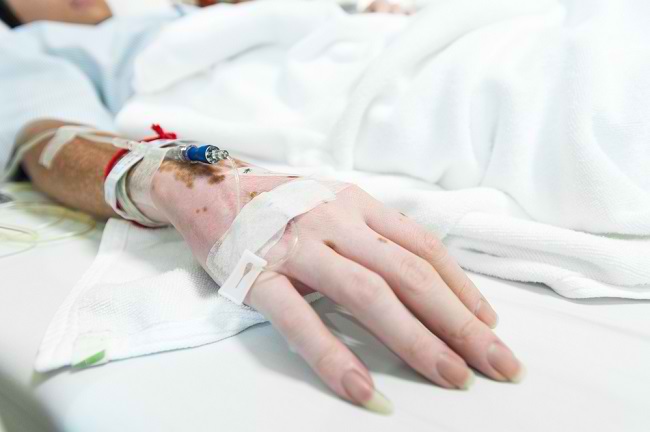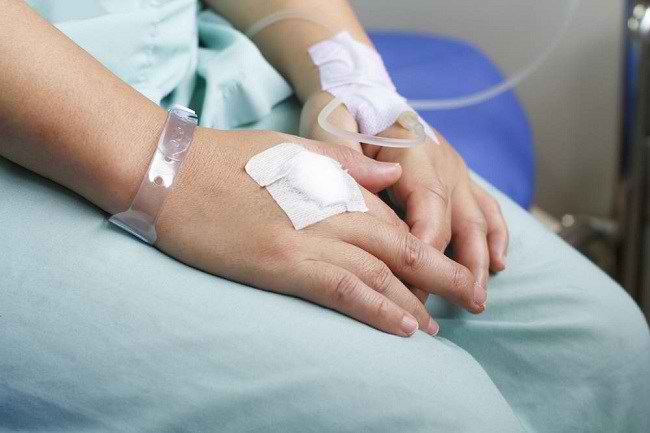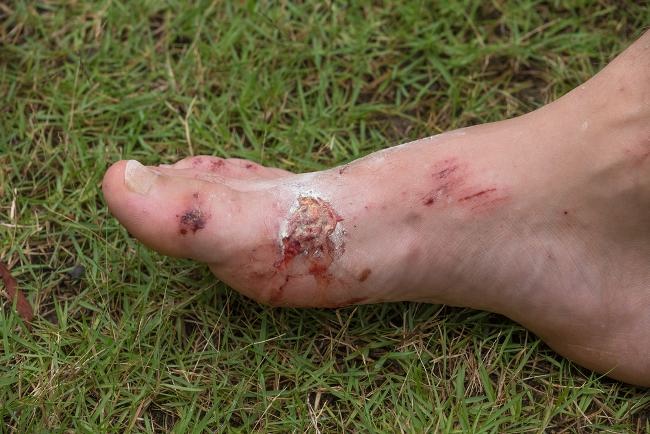Docetaxel is a drug to treat certain types of cancer, such as breast cancer, head cancer and neck, prostate, stomach, or lung cancer non-small cell lung cancer. This drug can be used as a therapyalone or in combination with other anticancer agents.
Docetaxel is a chemotherapy drug that works by interfering with cell division. This way of working will slow down and stop the growth of cancer cells. This medicine should only be given by a doctor or medical personnel under the supervision of a doctor.

docetaxel trademark: Brexel, Belotaxel, Daxotel, Docetaxel, Docetaxel Actavis, Docetaxel Trihydrate, Docehope, Doceran, Dochemo, Doxel, Doxetasan, Doxomed, Fonkodec, Oncotaxel, Taceedo, Taxotere
What is Docetaxel
| group | Prescription drugs |
| Category | Chemotherapy or anticancer drugs |
| Benefit | Treating breast cancer, lung cancer, stomach cancer, prostate cancer, and neck and head cancer. |
| Used by | Mature |
| Docetaxel injection for pregnant and lactating women | Category D: There is positive evidence of risks to the human fetus, but the benefits may outweigh the risks, for example in dealing with life-threatening situations. Docetaxel passes into breast milk and should not be used during breastfeeding. |
| Drug form | Inject |
Precautions Before Using Docetaxel
Docetaxel should only be given by doctors and medical personnel under the supervision of a doctor. There are several things to consider before using this drug, including:
- Tell your doctor about any allergies you have. Docetaxel should not be given to patients who are allergic to the drug, paclitaxel, or
- You will need to have your neutrophil levels and liver function checked before taking docetaxel. This drug should not be used if you have severe liver failure or have a neutrophil level < 1500 cells/mm3.
- Tell your doctor if you have heart disease, lung disease, neuropathy, a weakened immune system, hypertension, excessive fatigue due to asthenia, blood disorders, such as anemia or thrombocytopenia.
- Tell your doctor if you have or are currently suffering from blood cancer, especially the type acute myeloid leukemia (AML).
- Tell your doctor if you are being treated with other chemotherapy drugs, herbal products, supplements, or certain medications.
- Do not drive a vehicle or do activities that require alertness after taking docetaxel, as this medicine may cause dizziness and drowsiness.
- Tell your doctor if you are pregnant, breastfeeding, or planning a pregnancy. Use effective contraception during treatment with injectable docetaxel for up to 6 months after completion of treatment.
- Tell your doctor if you plan to get vaccinated, especially with live vaccines, during treatment with docetaxel.
- As much as possible, avoid close contact with people with infectious diseases that are easily transmitted, such as the flu or measles, while taking docetaxel, because this drug can increase your risk of contracting it.
- Report to your doctor immediately if you experience an allergic drug reaction, serious side effect, or overdose after using docetaxel injection.
Dose and Instructions for Use Docetaxel
The dose of docetaxel for each patient can be different. The doctor will determine the dose of injectable docetaxel based on the patient's body surface area (LPT), the type of cancer to be treated, and the patient's response to treatment. The following are the dosages of docetaxel for adults:
- Condition: Breast cancer
The dose is 60–100 mg/m² LPT. When combined with doxorubicin or capecitabine, the dose is 75 mg/m² LPT. When combined with transzumab, the dose is 100 mg/m² LPT. The drug is given by infusion for 1 hour or more, every 3 weeks.
- Condition: Lung cancer, stomach cancer, prostate cancer, or neck and head cancer
The dose is 75 mg/m² LPT. The drug is given by infusion for 1 hour or more, every 3 weeks.
How to Use Docetaxel Correctly
Docetaxel will be given directly by a doctor or medical personnel under the supervision of a doctor at the hospital. Docetaxel will be injected into a vein through an IV.
Follow the recommendations and advice given by the doctor while undergoing treatment with docetaxel. During treatment with docetaxel, patients are advised to drink lots of water.
While undergoing treatment with docetaxel, you will need to undergo regular health checks, including blood tests, eye exams, and liver and kidney function tests, to monitor your condition and the side effects that occur after taking docetaxel injection.
During the injection of the drug, tell the doctor or medical officer on duty if you feel pain, burning, or swelling, at the injection area.
Docetaxel Interactions with Other Drugs
The use of injectable docetaxel with other drugs can cause drug interactions, namely:
- Decreased effectiveness of live vaccines, such as the BCG vaccine
- Increased risk of developing dangerous infectious diseases when used with adalimumab or bariticinib
- Increased risk of side effects when used with amiodarone, ceritinib, atazanavir, erythromycin, ketoconazole, ritonavir, or verapamil
Docetaxel Side Effects and Dangers
Some of the side effects that may appear after using injectable docetaxel are:
- Nausea or vomiting
- Dizziness, drowsiness, feels like a hangover
- Irritation, pain, and swelling at the injection site
- Loss of appetite
- Hair loss or nail discoloration
- Red eyes and easy tears
- Constipation
Tell your doctor if the above side effects don't go away or get worse. Immediately see a doctor if there is an allergic reaction to the drug or a more serious side effect, such as:
- An infectious disease that can be characterized by symptoms such as fever, chills, severe sore throat, canker sores or sores that don't heal
- Easy bruising or nosebleeds are getting more frequent
- Chest pain, fast, slow, or irregular heartbeat
- Numbness, weakness, tingling, or burning in the hands or feet
- Tumor lysis syndrome, which is characterized by symptoms such as back and waist pain, pain when urinating, bloody urine, seizures, or muscle weakness
- Red, swollen, blistered, or peeling skin
- Visual disturbances, such as blurred vision or frequent flashes of light









